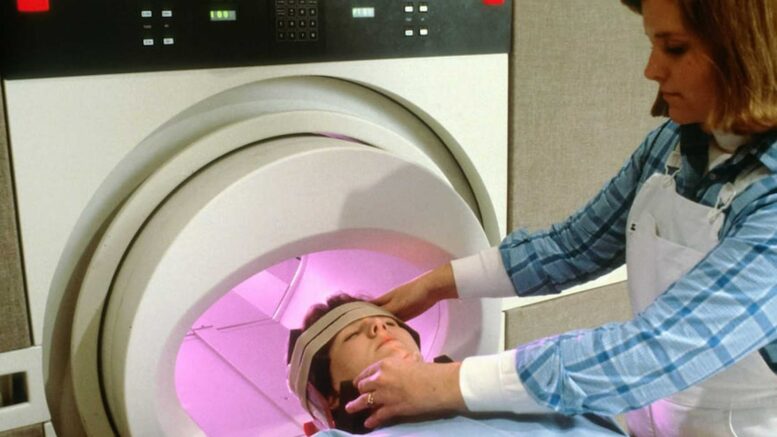Routine health checkups are crucial for maintaining our overall well-being and detecting possible health concerns early. Doctors and nurses usually perform various tests and assessments during these screenings to catch diseases or conditions before they worsen. A recent study suggests preventive actions could save approximately 100,000 lives annually. This article will examine the importance of consistent health checkups and how they help foster a healthier and more enjoyable life.
Encouraging Healthier Lifestyle Choices
Routine health screenings not only detect potential health issues but also inspire individuals to embrace healthier lifestyle choices. When people become aware of their health risks, they often feel motivated to make beneficial changes in their lives, such as adopting a balanced diet, engaging in regular exercise, and managing stress more effectively. These modifications can have a lasting positive impact on overall well-being.
Moreover, the knowledge gained from routine screenings helps individuals set achievable health goals and measure their progress over time. As they witness improvements in their health, it further reinforces their commitment to maintaining a healthy lifestyle.
Reducing Healthcare Costs
Access to affordable routine health screenings is essential in reducing healthcare costs for individuals. Identifying health problems early can also help avoid the necessity for pricier treatments and interventions later on. When people receive a timely diagnosis, they can manage their conditions more efficiently, potentially decreasing the need for expensive hospital stays or medical procedures.
Recently, several pioneering organizations have committed to delivering accessible and budget-friendly health screening alternatives. Serving as a prime example, Ulta Labs provides an array of testing services tailored to accommodate diverse needs and financial capacities. By prioritizing affordable health screenings, individuals can safeguard their health while minimizing financial burdens, ultimately leading to improved well-being and a more efficient healthcare system.
Common Health Screenings
Understanding the variety of health screenings available is crucial for staying informed about one’s well-being. These tests can help detect potential health issues before they become severe, allowing for timely intervention and improved health outcomes. Some common health screenings include:
- Blood pressure checks: Routinely measuring blood pressure can help identify hypertension, which can lead to heart disease and stroke if left unmanaged.
- Cholesterol tests: Monitoring cholesterol levels is vital for assessing the risk of heart disease.
- Diabetes screenings: Regular blood glucose tests can detect prediabetes or diabetes, allowing for early intervention.
- Cancer screenings: Tests like mammograms, Pap smears, and colonoscopies can help identify early signs of cancer, improving treatment success.
Besides these regular screenings, individuals must discuss with their healthcare providers the most suitable tests according to their age, gender, family history, and personal risk factors. Taking an active role in managing their health allows individuals to experience enhanced overall well-being and improved quality of life.
Improved Mental Health and Well-being
The benefits of routine health screenings extend beyond physical health, as they can also contribute to improved mental health and well-being. Gaining insights into their health status allows individuals to address any concerns, which can decrease anxiety or stress related to undiagnosed health issues. As a result, they can focus on improving their overall well-being with more confidence and clarity.
Moreover, a healthy mind and body frequently go hand in hand. Individuals can enhance their mental health by looking after their physical health through regular checkups and implementing necessary interventions. This interplay between physical and psychological well-being can establish a positive feedback loop, enabling people to lead more balanced and satisfying lives.

The Impact of Family History
Family history plays a significant role in determining an individual’s susceptibility to certain diseases. Genetic predispositions can make individuals more prone to developing specific health conditions, making routine screenings an essential part of preventive care. Some common conditions influenced by family history include:
- Heart disease
- Diabetes
- Certain cancers
- High blood pressure
- High cholesterol
Understanding one’s family medical history is crucial in identifying potential health risks. By sharing this information with healthcare providers, individuals can receive personalized recommendations for screenings based on their unique risk factors.
Facilitating Timely Treatment
Routine health screenings are invaluable in facilitating timely treatment for various health issues. Individuals can quickly seek the necessary medical attention when a potential problem is identified during a screening. Swift intervention often leads to significantly improved prognosis and outcomes for many health conditions, ultimately enhancing one’s quality of life.
Additionally, early treatment helps minimize the risk of complications or long-term health concerns that may arise from untreated conditions. This proactive approach to healthcare not only benefits individuals but also alleviates the burden on healthcare systems, promoting efficiency and better resource allocation. In essence, routine health screenings play a vital role in ensuring prompt medical care, leading to healthier lives and more resilient communities.
Strengthening the Doctor-Patient Relationship
Routine health screenings play a pivotal role in fostering strong doctor-patient relationships. Regular interactions with healthcare providers allow individuals to establish trust and rapport, leading to open, honest communication about their health concerns. As patients feel more comfortable discussing their needs and asking questions, healthcare providers can offer more personalized care tailored to each individual’s unique circumstances.
In turn, this enhanced communication enables patients to participate actively in their healthcare journey. They can make informed decisions based on their healthcare provider’s guidance and work collaboratively to achieve optimal health outcomes.
Monitoring the Progress of Existing Conditions
For those living with pre-existing health conditions, routine screenings are indispensable in monitoring the progress and management of their health. By consistently evaluating their condition, healthcare providers can make well-informed adjustments to treatment plans, ensuring the most effective care is provided. Regular screenings empower individuals and their healthcare teams to adapt to changing health circumstances, ultimately improving overall well-being.
In addition, these screenings can also help identify any potential complications or new health concerns that may arise alongside existing conditions. By addressing these issues promptly, individuals can minimize the risk of further health complications. Regular health screenings are essential tools for managing pre-existing conditions and maintaining an optimal level of care tailored to individual needs.
Promoting Health Equity
Routine health screenings play a vital role in promoting health equity, ensuring individuals from various backgrounds and socioeconomic statuses have access to essential preventive care. Making screenings available to everyone helps identify and tackle health disparities within different communities, fostering a more inclusive, fair, and equitable healthcare system for all.
Moreover, advancing health equity through routine screenings empowers underprivileged communities by supplying them with the knowledge and resources needed to manage their health. Consequently, this approach leads to better health outcomes and a decrease in healthcare disparities.
Conclusion
Routine health screenings hold immense value in maintaining overall well-being. They enable early detection, promote healthier lifestyle choices, and foster stronger doctor-patient relationships. Screenings also reduce healthcare costs and contribute to health equity. People can make informed decisions about their health by considering factors such as family history and individual risk. Ultimately, engaging in regular health screenings empowers individuals to take charge of their well-being, paving the way for a healthier future.
